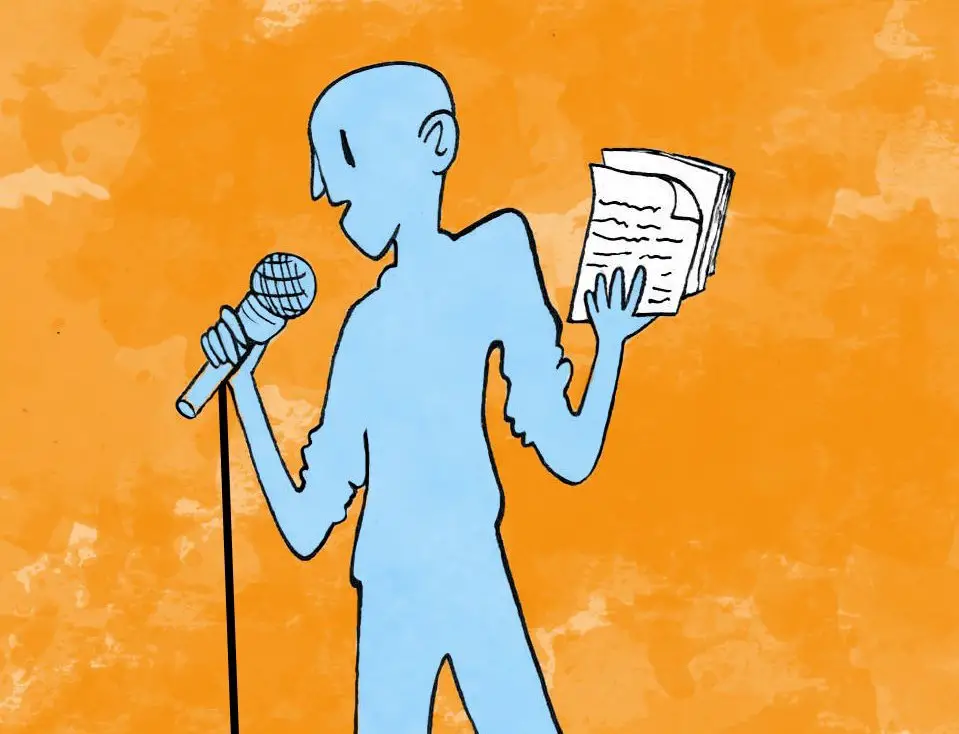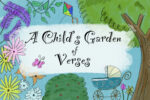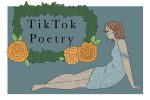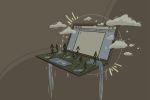If you haven’t heard of Solmaz Sharif — as I had not before attending her lecture at University of South Carolina — reading her story and what inspires her poetry will transform her from a stranger to an indelible figure in your life. Sharif is an Iranian poet and graduate from both University of California, Berkeley, and New York University. Her collection of poetry, “Look,” was a candidate for a multitude of awards, including the National Book Award.
But that prestige is just the beginning of what is so impressive about these poems; the real star is the foundation for their creation, and their purpose. At her lecture, Sharif explained that she wrote the poetry to expose an atrocity that our government commits in the everyday use of the English language: the manipulation of language to twist and redefine words, turning their meaning into cruel devices of war. To orchestrate the reveal, she wrote a series of poems using words found in the United States Department of Defense (DOD) Dictionary of Military and Associated Terms.
Throughout the entire collection, Sharif assigns the department’s terms a different font to distinguish them from the rest, leaving it up to readers to interpret their militarized definitions. However, she does offer the audience the decrypted word, featured at the beginning of the collection and used to title the book: “Look –– (*) In mine warfare, a period during which a mine circuit is receptive of an influence.”
Sharif defined the word aloud for the audience during her reading, looked up and in the most blunt manner, explained that what this meant was “the period during which someone steps on a mine and dies.”
What Sharif is exposing is the incredible difference between what our basic understanding of the word “look” is, and the definition the DOD assigns it. The work also forces most readers to come to the harsh realization that they were unaware of the DOD’s dictionary of definitions based off common language.
She explains in her first piece of the collection, “Look,” that “it matters what you call a thing.” The poem encapsulates Sharif’s experiences not only with her own family’s trauma, but occurrences within the United States where she would constantly be confronted with “Well, If I were from our culture, living in this country, I would put up with that for this country.”
The ignorance and lack of respect Sharif faced in the United States for her Iranian heritage and the wars occurring in Afghanistan and Iraq inspired her poetry. Sharif wants citizens to “look” at what they aren’t seeing about the government’s military strategies, and the countries that are attacked without public knowledge. She closes with “let it matter what we call a thing.”
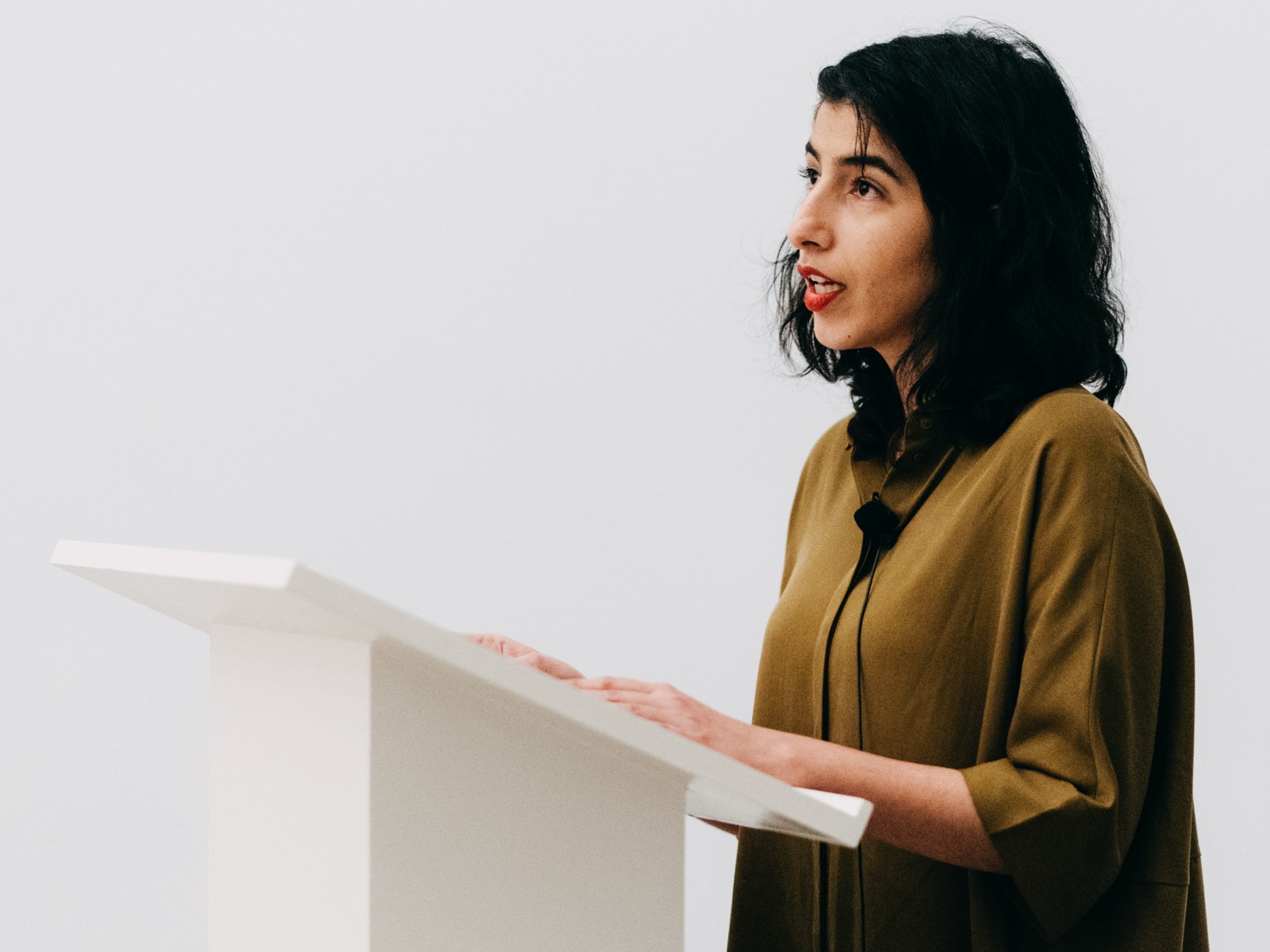
On a lighter note, Sharif seemed to anticipate the horror the reader would feel about midway through her collection of poems, so she included a humorous one, almost completely composed of the DOD’s terms. The poem is titled “Special Events for Homeland Security,” and it is essentially an invitation to an orgy. It begins, “Leave your dolly at home––this is no innocent passage. Ladies, bring your kill box. Boys, your hung weapon.” The poem is, and was intended to be, absolutely hilarious. Sharif uses her poetry as a combative weapon against the DOD; if they are going to manipulate the language, she will manipulate it right back. However, this is only humorous insofar as we remain ignorant to the indicated words’ true meanings.
Dolly: Airborne data link equipment.
Innocent Passage: Passage is innocent so long as it is not prejudicial to the peace, good order or security of the coastal State. Such passage shall take place in conformity with this Convention and with other rules of international law.
Kill Box: A three-dimensional permissive fire support coordination measure with an associated airspace coordinating measure used to facilitate the integration of fires.
Hung Weapon: Those weapons or stores on an aircraft that the pilot has attempted to drop or fire but could not because of a malfunction of the weapon, rack or launcher, or aircraft release and control system.
The remaining poems within “Look” keep in line with this style, all including definitions from the DOD’s Dictionary of Military Definitions. Sharif’s purpose in this is twofold: to enlighten readers to the manipulation of our language performed unapologetically by the United States government, and to educate, so that the audience will have the tools to bring change.
Sharif exposes how little people actually know about the United States military and what they do in foreign countries. The inspiration for many of her poems is an uncle who was killed in the Iran-Iraq war before she was born. Sharif wrote a series of poems dedicated to him, based off a single photograph.
In an interview for the Paris Review Sharif explained, “It started as a rewrite of the dictionary, and wanting to redefine the terms to reveal the truth beneath the terms. It then evolved into revealing those terms as a part of our lives everywhere, daily in the U.S. I think the last major piece that went into it was the long elegy, ‘Personal Effects,’ that I wrote for my uncle, and that was probably when I thought that it was pretty much done. That was the last major piece the book needed.”
Sharif hybridized her own personal experiences with those that of the average American, without realizing the full effects of it. Many citizens listen to the news and politicians talk about war, without understanding what really happens in Afghanistan, Iraq and Iran. The military functions in a discrete way that a large part of the country does not know about. People like Sharif suffer extreme inner turmoil because of her country’s suffering, her personal experiences and the opinions of those in America. What she is aiming at, what she wants this collection of poems to do, is to force us to “look” at the reality of the war around us, to acknowledge what is right in front of us and do something about it.


